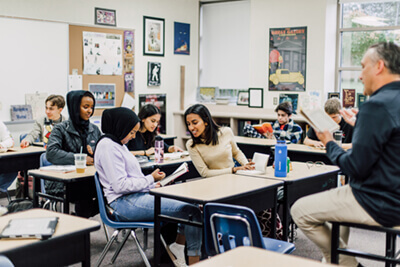September 17, 2020
 On the morning of Saturday, May 30, I awoke very early, with only a few hours of sleep and with great sadness. The explosion of anger and frustration manifesting in peaceful protests juxtaposed with the violence and destruction across Minneapolis and the nation the night before was hard for me to fathom. In the months since then, the murder of George Floyd and other Black, Indigenous, and People of Color (BIPOC) have prompted both dangerous civil unrest and peaceful protest and brought to the forefront systemic racism embedded in our society.
On the morning of Saturday, May 30, I awoke very early, with only a few hours of sleep and with great sadness. The explosion of anger and frustration manifesting in peaceful protests juxtaposed with the violence and destruction across Minneapolis and the nation the night before was hard for me to fathom. In the months since then, the murder of George Floyd and other Black, Indigenous, and People of Color (BIPOC) have prompted both dangerous civil unrest and peaceful protest and brought to the forefront systemic racism embedded in our society.
In my Panther Post message the following Thursday titled “Turn To The Voices Of Our Students,” I wrote about the inspiration I found in our students, particularly then-junior Salmah Elmasry. Elmasry issued a call for action, “We are in a particular position that requires us to be active and not to be reluctant. To advocate against these issues publicly. If we display any reluctance, we will only continue with the status quo and allow all of these issues to perpetuate.” I spent much of the summer struggling with my personal role in fighting for racial justice and, as leader of an institution, what MPA must do to dismantle systemic racism in our school and in our society.
From the founding of MPA in 1982, our school has been committed to embracing diversity, seeking equity, and continually striving to be truly inclusive. It has been a national leader among independent schools, and ahead of its time, in areas such as sexual orientation and gender identity. As a community, we have focused on fostering a safe and inclusive space for all, aspiring to be cognizant of gender identity and equality, religious understanding, socio-economic diversity, multicultural awareness, and racial diversity of students and staff. Equity, justice, and inclusion are embedded in our mission statement, addressed in our strategic plan, and key in preparing our students to learn, live, and thrive in an increasingly diverse world. As much as I am proud of who we are and what we have accomplished, I also realize there is much more to do.
In late July, I was invited to attend a joint meeting of the Upper School Social Consciousness Club and the Racial Justice and Equity Club. Together, they had been meeting over the summer and reading “How To Be An Antiracist” by Ibram X. Kendi. Earnestly, and with great respect, the students shared that in looking at the MPA Community Handbook and related policies, they realized that not once did the school explicitly condemn racism. I was appalled at this glaring omission and this resulted in a renewed sense of urgency to reimagine MPA’s commitment to not just diversity and inclusion, but to racial equality and justice.
In collaboration with the Board of Trustees and the Administrative Team, I have formed an Antiracism Action Group to engage the MPA community in reflection, advocacy, and action to dismantle racism in our school and in the larger community. Membership will come from the student body, Board of Trustees, faculty, staff, parent and alumni communities and will be co-chaired by trustee Tiffany Scott Knox and senior Salmah Elmasry. The Antiracism Action Group will spur individual and institutional examination to ensure that antiracism is reflected in the life and culture of the school and in our policies, programs, and practices. Created to take action, the outcome will be a series of concrete steps that will be implemented at the appropriate level of the school, such as the Board of Trustees, administration, department, division, and classroom. The co-chairs and I pledge to engage our community in these important conversations and communicate frequently about the progress that the group is making.
The raw, visceral murder of George Floyd and ensuing unrest and violence this summer has laid bare the fissures of society many gloss over or choose to ignore. Yet through critical thinking, creative inquiry, and honest conversation, our young people hold the promise of change where our generation, and generations before us, have failed. The MPA curriculum, grounded in character education and the humanities, in concert with the sciences, provides the tools and materials necessary to build a better future, to “stir the human spirit, stand for justice, and shake the world.” Indeed, building a better future is at the heart of dreaming big and doing right.